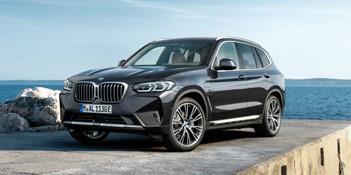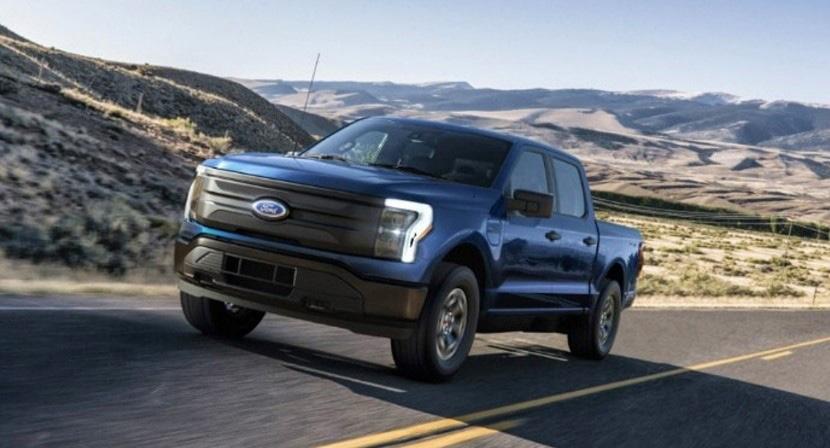
8 minute read
OESA Market Update
Mike Jackson
Executive Director, Strategy and Research 248.430.5954 │ mjackson@oesa.org
Advertisement
MARKET
• LMC Automotive and Cox Automotive each reduced their full-year U.S. light-vehicle sales forecast to 15.3 million units, citing a slower pace to recovery from market constraints. • Toyota lowered its industry forecast for 2022
U.S. light vehicle sales to 15.5 million
units, down from a previous projection of 16.5 million units. • The April outlook for North American light vehicle production in 2022 remains flat at 14.75 million units, per S&P Global Mobility.
Output in Q1-2022 came in stronger than forecast at 3.55 million units, yet the Q2- 2022 outlook was revised lower on continued supply chain struggles and concerns over logistics at border crossings between the US and Mexico in Texas. • The stock market is on track for the worst year since 2008, falling nearly 13% so far in 2022, lopping roughly $5 trillion off the value of the S&P 500 and threatening to turn a sour national mood downright poisonous (Axios). • China Economy: Against a challenging macroeconomic backdrop, COVID-19 lockdowns and ongoing supply chain bottlenecks, investors are reevaluating their exposure to China. “We are in a ‘perfect storm’ situation where we have a number of economic and regulation headwinds all going against the market at the same time,” says Goldman Sachs Research’s Kinger Lau, chief China equity strategist. “When you're trying to achieve some other goals, there will be costs,” says Hui Shan, Goldman Sachs
Research’s chief China economist. “The costs to us will be slower economic growth.” • Retail car sales in China fell by 10.5% in
March versus year ago levels, according to estimates from the China Passenger Car
Association.
• BMW to Increase Shareholding in BMW
Brilliance Automotive JV German vehicle maker BMW AG announced to increase its stake from 50% to 75% in the China-based
BMW Brilliance Automotive joint venture. The
JV was formed together with the Brilliance
China Automotive Holdings Ltd., a Chinese automaker. BMW is said to pay $4.2 billion to increase its stake. • Musk Twitter play sparks concerns about distraction, Tesla stock sales • Wells Fargo economists have become more hawkish on the outlook for Federal Reserve monetary policy, and now expect the FOMC
to lift interest rates by 50 bps in May as
well as in June. Fed Chair Powell all but cemented a 50 bps hike during his remarks at the IMF Spring Meetings where he said "50 basis points will be on the table for the
May meeting." Given a revised view and the possibility of U.S. policymakers turning even more hawkish, they continue to forecast
U.S. dollar strength over the short, medium and longer term. • BMW looking to Mexico for SUV Sourcing:
BMW Group CEO Oliver Zipse said, "Mexico will play an important role in our complete setup," Zipse told Automotive News this month. "At some point in time, you will see
X models because the market demand is so high.” • Stellantis investing $3.6 billion in EVfocused assembly plants, R&D centers in
Ontario, to create, “flexible, multi-energy vehicle assembly facilities ready to produce the electric vehicles of the future.”: The governments of Canada and Ontario will each
give Stellantis up to $513 million toward the projects. • Global microchip shortage will fester into 2024: Supplies of semiconductors will not normalize until 2024, by which time there will still be a structural undersupply, VW Group finance chief Arno Antlitz said.
POLICY
• March 10, 2022: NHTSA issued its First
Occupant Protection Safety Standards for
Vehicles Without Driving Controls • March 31, 2022: NHTSA Finalizes CAFE
Standards for MYs 2024-2026 • GM asked its suppliers to sign an ESG pledge pertaining to carbon neutrality, development of social responsibility programs and the use of sustainable procurement practices in their supply chain operations. • The U.S. Senate again passed its version of a bill intended to increase the nation’s competitiveness with China, including a proposal for $52 billion to boost domestic semiconductor manufacturing. The Senate and House first passed versions of the bill in
June 2021 and February 2022, respectively.
The bills will require negotiation between the chambers. • The Biden Administration will invoke the Defense Production Act to increase domestic production of critical minerals for uses that include large-capacity batteries in electric vehicles. • The President and CEO of the Federal
Reserve Bank of Chicago, Charles Evans, will retire in early 2023 after 31 years of distinguished service to the Federal Reserve
Bank of Chicago and the Federal Reserve
System. • NHTSA announced proposed updates to its New Car Assessment Program (NCAP), adding four ADAS technologies, as well as changes to the test procedure and performance criteria for technologies.
TECHNOLOGY
• E-range tops 1 billion miles in '21: The cumulative electric-only range on vehicles sold globally in 2021 was more than 1 billion miles for the first time, says consulting firm
AlixPartners and their disruption index study.
The figure reflects both rising sales and the longer ranges of EVs sold today. • Stellantis will use Qualcomm’s Snapdragon
Digital Chassis for upcoming in-vehicle technology platforms as part of an expanded partnership expected to benefit connected and data services.
• Ford started shipping its electric F-150
Lightning on April 26th, and announced even better horsepower ratings: the standard range will produce 452 horsepower, and the extended will get a whopping 580 horsepower.
Ford stopped taking pre-orders in December, and is currently figuring out how to reach its goal of producing 150,000 Lightnings per year. • China plays a big role in AV world: San
Francisco can be construed as having a dominant role in the global robotaxi battleground, with Waymo and Cruise providing service there and Zoox ostensibly not far behind. But it's a provincial view of the industry. Don't discount developments on the streets of Beijing, where Baidu and Pony. ai both received permits from regulators to expand the scope of their service in the city. • GM will debut a Corvette EV, which could use the name E-Ray, will be a new addition to the Corvette lineup when it hits the market in 2024 as a 2025 model. • Hyundai announced plans to invest 19.4 trillion won ($16 billion) in electrification, introduce 17 new battery electric vehicle models and reach annual BEV sales of 1.87 million units by 2030.
To learn more about automotive supplier sentiments and economic and industry trends, contact Mike Jackson, Executive Director, Strategy and Research, at mjackson@oesa.org.
STRATEGY
• Renault explores sales of Russian unit:
French auto maker Renault SA RNO +2.71% is in talks with the Russian government about selling its 68% stake in Russia’s biggest auto maker, AvtoVAZ to NAMI, a state-backed automotive R&D center for the symbolic sum of one ruble. Who stands to benefit? Likely
China.
• EV adoption faces many speed bumps
as supply chain snags are likely to prevent the industry from catching up with growing demand. OEMs and governments have set ambitious targets for EV expansion. Legacy automakers have rolled out aggressive investment and product plans. The Biden administration wants half of all new-vehicle sales to be zero emission by 2030, while other jurisdictions are more aggressive:
California aims to be all-ZEV by 2035. • Stellantis (STLA.MI) has agreed to buy the
Share Now car sharing business from BMW (BMWG.DE) and Mercedes-Benz (MBGn.
DE) as the two German groups focus more on the software side of their mobility alliance.
Stellantis wants to become a global leader in car-sharing, expanding its business in this space.
• Tesla produced 305,407 vehicles in Q1
2022, a dramatic increase from the year-ago quarter. Tesla reported Wednesday that its first-quarter net earnings were over seven times greater than a year ago, powered by strong sales despite global supply chain kinks and pandemic-related production cuts in
China.
• Startups apply artificial intelligence to
supply chain disruptions: A growing group of startups and established logistics firms has created a multi-billion dollar industry applying
AI and the latest technology to help firms and their customers react more swiftly to supplier snarl-ups and raw material availability. • Ford will reorganize into separate business units for its EV and ICE vehicles, and the automaker will increase its EV investment to $50 billion between 2022 and 2026. CEO
Jim Farley recently stated the company does
not plan to spin off its electric vehicle
business, but it will require different talent and less structural complexity to ramp up
EV & software sales. • GM-Honda EV Partnership: has said it plans to build two million electric vehicles globally by 2030, including the mid-size models being developed with GM. Shinji Aoyama, Honda's global head of electrification said Honda has agreed to use GM's next-generation Ultium battery while targeting North American
production of 750,000-800,000 electric vehicles in 2030, and about the same in
China, with another 400,000-500,000 in
Japan and other markets. • Shares of Nissan Motor Co Ltd (7201.T) slumped 5%, taking their biggest fall in more than a month, following a report that top shareholder Renault SA (RENA.PA) may consider lowering its stake in the Japanese automaker. • BMW CEO warns against electric-only strategy: "When you look at the technology coming out, the EV push, we must be careful because at the same time, you increase dependency on very few countries," Zipse said at a roundtable in New York, highlighting that the supply of raw materials for batteries was controlled mostly by China. If you are not selling combustion engines anymore, someone else will," said Zipse. • Russia Could Nationalize Global Automakers:
OEMs have suspended operations in Russia to comply with sanctions and address supplychain disruptions. "I think it's a high risk," said
Joe McCabe, CEO of AutoForecast Solutions. "There are high odds that companies…are nationalized for the sake of his country's economy." Who stands to benefit? Likely
China.






